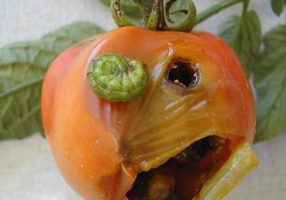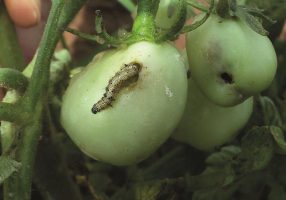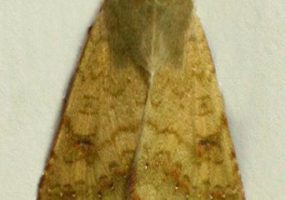Scientific name: Helicoverpa zea
Crop: tomato
Damage: Defoliation, drilling of fruits.
Behavior:
- Eggs are laid in any part of the plant.
- The big fruit borer of the tomato is observed mainly during the maturation and development periods of the fruits, but it can be present in the plant since the vegetative phase.
- The caterpillars cause damage to the leaves and then migrate to the fruits, where they drill to feed on the pulp.
- The caterpillars migrate to the soil in the pupal stage.

Larva of Helicoverpa zea Photo: Plant Health Progress

Drilling of tomato fruits by larvae of Helicoverpa zea Photo: Grupo Cultivar

Adult of Helicoverpa zea Photo: EMBRAPA
Control
End of caterpillar resistance!
Bacillus thuringiensis has different crystals in its composition: Cry1Aa, Cry1Ab, Cry1Ac, Cry2Aa, and Cry2Ab. This characteristic makes Bacillus thuringiensis an important tool for the management of the complex resistance system of caterpillars.

